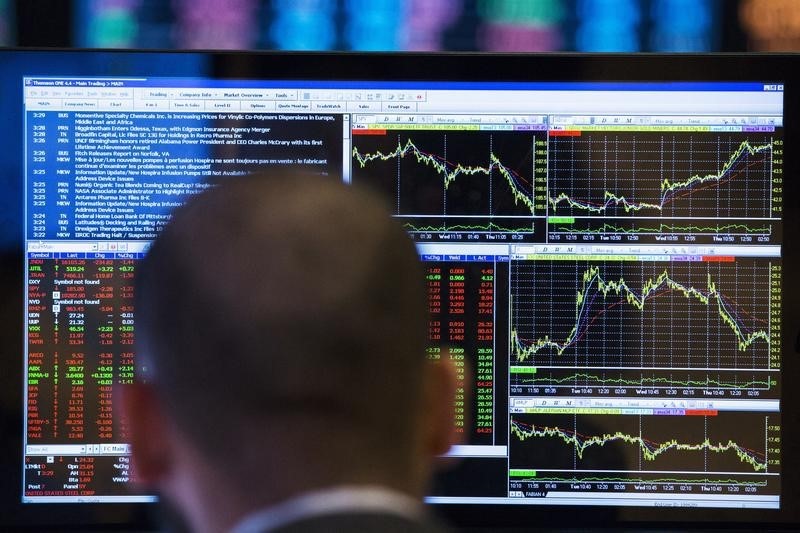(Corrects the stock sale date to April 12 from April 16 in paragraph 8)
Suzanne McGee
(Reuters) – A new fund that gives shareholders access to private technology companies has sent investors into a frenzy in recent weeks, while drawing criticism from the likes of Morningstar and rival ARK Investment Management.
Shares of Destiny Tech100 are up about 200% since launching on March 27 after a wild three-week run that saw them rise as much as 1,172% from their debut price of $8.25. The fund’s shares closed Monday down 13.1% at $24.68.
The fund owns stakes in about 25 private technology and growth companies, including SpaceX, OpenAI, Instacart (NASDAQ:) and online payment processor Stripe. The company plans to update its holdings on a quarterly basis, and founder Sohail Prasad said last month that he would like the company to eventually own 100 companies.
It currently has a market capitalization of $276.46 million. Last week, the company filed with the SEC for a secondary sale of up to $1 billion in new shares.
While it’s not the first fund of its kind, Destiny Tech100 appears to have caught the eye of the meme stock crowd, contributing to wild swings in stocks of everything from GameStop (NYSE:) to more recent offerings like Trump Media & Technology. Group.
Prasad founded the DestinyTech 100 in late 2021 with the goal of providing greater access to a diversified pool of pre-IPO companies that typically target high-net-worth investors.
remove advertising
.
“These are companies that people know, love and use frequently in their daily lives, but may not invest in unless they are rich,” he said.
He sold 200,000 shares of the fund on April 12 at $24.65, the same day the fund filed for a secondary offering. Prasad still owns 1.08 million shares, according to Securities and Exchange Commission (SEC) filings. On April 8, the fund’s shares reached a 52-week high of $105.
Other funds offered similar products, including ARK Investment Management, a firm led by Cathie Wood. ARK’s venture fund debuted in September 2022 but was slow to attract investors, resulting in them paying higher ownership costs than originally expected.
A year ago, ARK proposed waivers and refunds of these fees, capping their rate at 2.9%. The fund now has total assets of $53.7 million.
According to the SEC filing, Destiny Tech100 charges an estimated fee of 4.98%.
Speaking to Reuters after the London event, Wood said the rival fund’s structure and fees meant investors faced a “much higher cost” in exchange for daily liquidity.
In a note to investors last week, ARK said its pre-IPO investing approach is better than Destiny Tech 100, saying the company offers a share price close to the shares’ net asset value and shareholders can buy back up to 5% of the shares’ value fund. total assets quarterly.
“We believe liquidity is most important,” Prasad told Reuters in an email response to ARK’s criticism, adding that “we’ve made it easier” by allowing investors to buy and sell DXYZ shares through existing brokerage platforms.
remove advertising
.
Prasad added that he appreciated that ARK’s comments helped educate investors about the concept.
“There are a lot of structural changes going on in the private markets, and it’s great to see another forward-thinking firm trying to drive innovation and progress.”
Last week, Morningstar also published its own critique of Destiny Tech100, addressing some of the same issues raised by ARK.
“Investors would be wise to stay on the sidelines” in light of the fund’s structure, Jack Shannon, senior research analyst at Morningstar, said in a report. “The massive Destiny Tech100 award represents a unique opportunity for investors to enrich others at their own expense.”
Prasad declined to comment on Morningstar’s rating.


